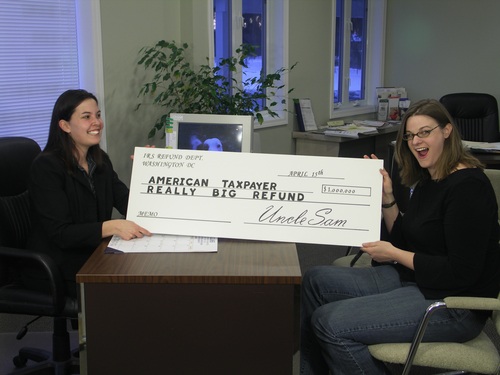
The IRS recently issued an urgent warning to taxpayers about the increasing prevalence of tax scams, particularly those that lure individuals into filing for inflated refunds. These scams often involve misleading advice that leads to false claims for various credits, including the Fuel Tax Credit, Sick and Family Leave Credit and Household Employment Taxes. Understanding these scams and their implications is crucial for taxpayers to avoid falling victim and facing severe consequences.
Fuel Tax Credit Scams
One of the most common scams involves fraudulent claims for the Fuel Tax Credit. This credit is designed for off-highway business use of fuel, such as farming or construction. However, some unscrupulous tax preparers and scammers falsely claim this credit on behalf of individuals who do not qualify. The IRS has noticed an uptick in these false claims and is actively pursuing those who promote and file these fraudulent returns. Claiming this credit without proper qualification can result in significant penalties and interest on the unpaid taxes.
Sick and Family Leave Credit Scams
Another area of concern is the Sick and Family Leave Credit. This credit was introduced as part of the COVID-19 relief measures to assist employers who provided paid sick leave and family leave to their employees. Scammers are now targeting individuals and businesses by falsely advising them to claim these credits even if they are not eligible.
The IRS emphasizes that these credits are only available to employers who actually provided the paid leave as mandated by the Families First Coronavirus Response Act (FFCRA). Taxpayers should be cautious of any tax preparer who promises large refunds by improperly claiming these credits. Falling for this scam can lead to audits, repayment of the fraudulent refund, and additional penalties.
Household Employment Taxes Scams
Household employment taxes, often referred to as the “nanny tax,” are another target for scammers. These taxes apply to individuals who hire household employees, such as nannies, housekeepers or caregivers. Some fraudulent tax preparers falsely claim credits and deductions related to household employment taxes, enticing taxpayers with the prospect of substantial refunds. The IRS warns that improper claims related to household employment taxes can trigger audits and result in significant financial repercussions. Taxpayers should ensure that they understand the rules and regulations governing household employment taxes and only claim legitimate deductions and credits.
Protecting Yourself from Tax Scams
To protect themselves from these scams, taxpayers should be vigilant and skeptical of any tax preparer who promises unusually large refunds. Here are some tips to avoid falling victim to tax scams:
-Verify Credentials: Always check the credentials of your tax preparer.
-Be Cautious of Promises: Be wary of any tax preparer who promises substantial refunds without understanding your financial situation or eligibility for specific credits.
-Review Your Return: Carefully review your tax return before signing it.
-Report Suspicious Activity: If you suspect that you have been targeted by a tax scam, report it to the IRS immediately.
The Corporate Capital Difference
As the IRS ramps up its efforts to combat tax scams, be sure to understand the common scams related to the Fuel Tax Credit, Sick and Family Leave Credit, and Household Employment Taxes. This will help protect you from falling victim to fraudulent schemes. Always rely on reputable tax professionals, such as Corporate Capital’s dedicated team and verify the legitimacy of any claims to ensure a smooth and compliant tax filing experience. Our licensed professionals and legal experts in Las Vegas, Nevada, are here to give you the peace of mind you deserve when filing your taxes. We invite you to call 855-371-0070 to learn more!


 855-371-0070
855-371-0070